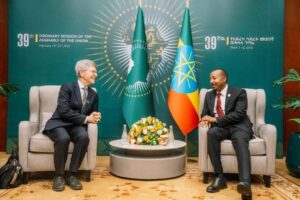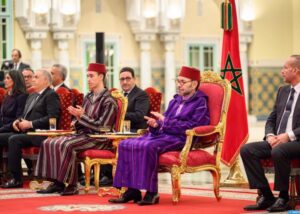Power of Action Research
Hashoo Foundation provides a gracious platform to experiment and implement global knowledge and local wisdom in a scientific manner

Action Research enables a deep understanding of the specific context and challenges faced by communities
In a world where ‘money solves all problems’ is considered a strong narrative but the reality shows that the pursuit of finances for our goals often stops us from attaining the very goal itself. The prudent mind knows that funds are not the only solution to a problem. So what is?
Humanitarian crises are almost exclusively found in areas of chronic poverty, therefore, the answer is misguidedly attributed to finances alone. However, empirical data shows that ‘money’ alone does not lift individuals or communities out of poverty. It is an evidenced based, integrated, well thought and well executed strategy with concerted efforts of all State, Private sector, Academia and civil society actors that bring about the desired change on a sustainable basis.
This brings us to the ‘Action Research’ approach which is highly underrated in the global development sector and practically non-existent in Pakistan. Thus it was quite revolutionary when back in June 2016 as CEO of Hashoo Foundation, I introduced it as a conscious part of our organizational strategy. As a development economist and social activist working to empower people, the Hashoo Foundation provided a gracious platform to experiment and implement global knowledge and local wisdom in a scientific manner.
Ever since the Foundation adopted action research as part of its strategy, we have seen incredible, long-lasting results in the communities that we have assisted. For which, the iF awarded us with the social impact prize in 2020. Action research enables a deep understanding of the specific context and challenges faced by communities. It emphasizes local knowledge, exploring the root causes of issues, and leverage knowledge as capital to bring about the desired change. This comprehensive approach helps development organizations design interventions that are tailored to the specific needs and circumstances of the client populations, increasing the likelihood of successful and sustainable outcomes.
Action research further allows for continuous learning, adaptation, and improvement of interventions in circumstances that can rapidly change and contexts where uncertainties are high. This flexible and adaptive approach lays the basis for success in interventions. This approach has enabled us at Hashoo Foundation to correctly learn more from our experiences – both success and failures – and improve our outcomes over time. Not only that but since we adopted action research in 2016, our collaboration and partnerships with other development entities, researchers, and communities have not only significantly increased but have become more meaningful and impact oriented.
The Hashoo Foundation approach actively involves all stakeholders, especially community members in the research process, thus this action research promotes ownership, empowerment, and sustainable solutions. By working together, stakeholders combine their expertise, resources, and experiences to develop and implement comprehensive and effective strategies. This collaborative approach sets the stage for empowering people who see the demonstrated value of partnerships and in the long term it contributes towards social cohesion and harmony.
In our Action Research approach, we ensure that interventions are contextually appropriate, culturally sensitive, and aligned with the client community’s aspirations and goals. Living in a Knowledge Age, I feel that the Hashoo ‘Action Research’ approach that emphasizes the use of both global and local learning is central to the sustainability of all meaningful development initiatives.


